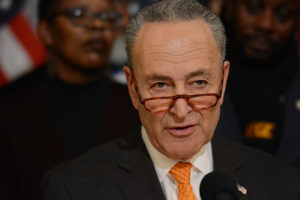
Ahead of the House’s vote on Thursday to pass its GOP-proposed $14.3 billion Israel aid bill, Senate Majority Leader Chuck Schumer (D-N.Y.) said the upper chamber won’t consider the legislation, which he called a “deeply flawed proposal.” “Instead we will work on our own bipartisan emergency aid package that includes funding for aid to Israel, Ukraine, humanitarian aid including for Gaza and competition with the Chinese government,” Schumer wrote in a social media post. The House on Thursday voted 226-196,…

 By
By 










